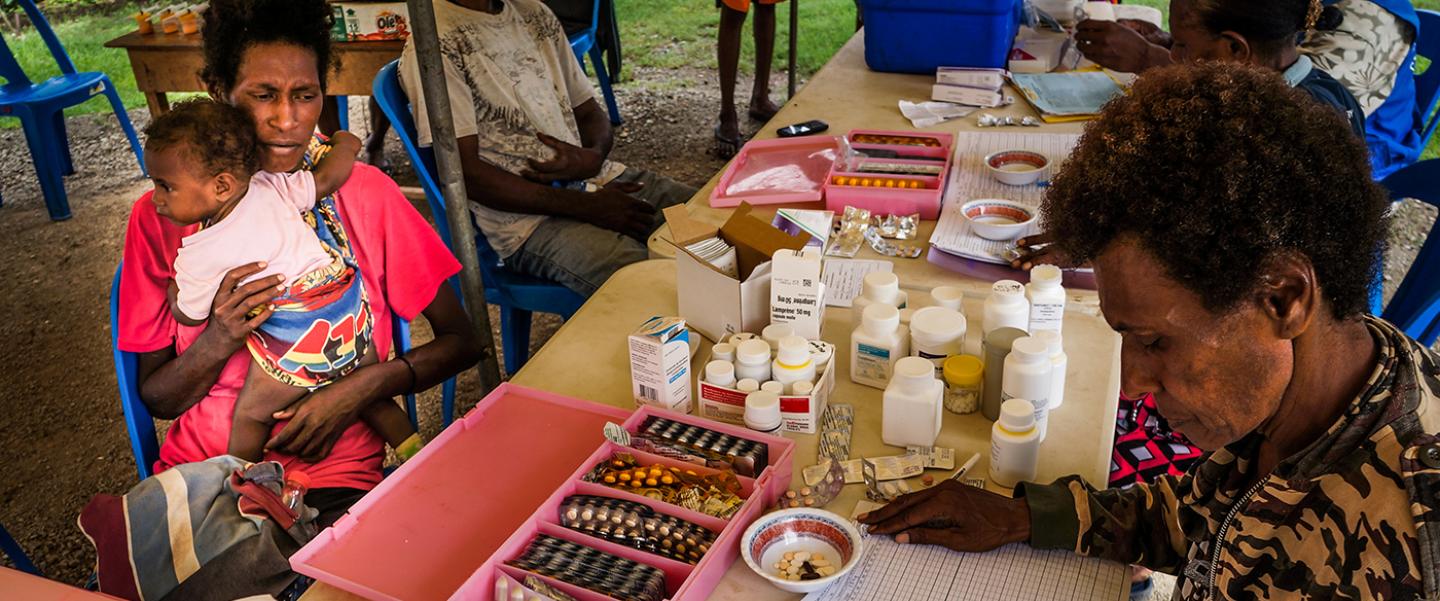HIGHLIGHTS
- National and provincial health plans have targets to meet regarding child mortality, maternal health, and combating diseases
- Abt Global – part of a unique public-private partnership – is improving service delivery and providing technical assistance
- The health plans are closer to meeting benchmarks for antenatal care, vaccination rates, and other goals
The Challenge
National and provincial health plans in remote communities in the Western Province of Papua New Guinea have mandatory goals for reducing child mortality, improving maternal health and combating HIV and AIDS, malaria, tuberculosis and other diseases.
The Approach
Abt Global manages a unique public-private partnership to address some of the toughest health challenges and improve health outcomes for Papua New Guineans in these remote communities. The Community Mine Continuation Agreement (CMCA) Middle South Fly Health Program (CMSFHP) and the North Fly Health Services Development Program (NFHSDP) support local health providers to achieve these targets.
Both programs are built around a partnership between local governments, Ok Tedi Development Foundation, and church and government health services, with Abt as the implementing partner. The partners collaborate to strengthen health service delivery. Abt’s team of qualified health professionals works with our partners to provide on-the-ground service delivery, assist remote-based health staff, procure medical equipment, manage infrastructure improvements, provide training and outreach and promote the use of current and evidence-based protocols.
The Results
Across the delivery areas during the past five years:
- Antenatal first visit coverage reached 43 percent, up from 29 percent;
- The number of outreach clinics per 1,000 children five years or younger increased from four to 27;
- Third dose, combined vaccination coverage increased from 7 percent to 30 percent;
- 96 community members have been trained as Village Health Volunteers; and
- More than 33,000 vaccinations have been administered to children under five years old.
